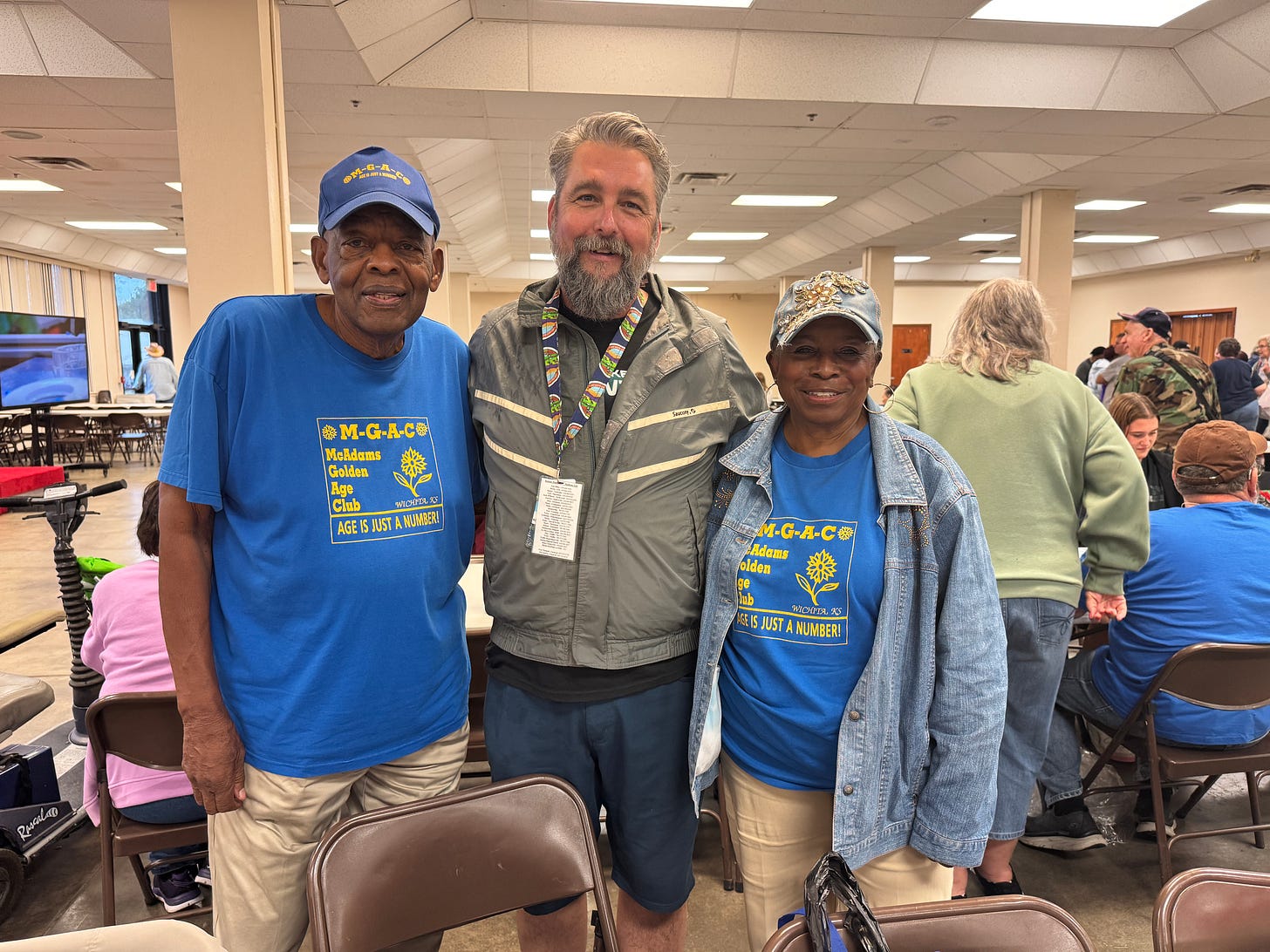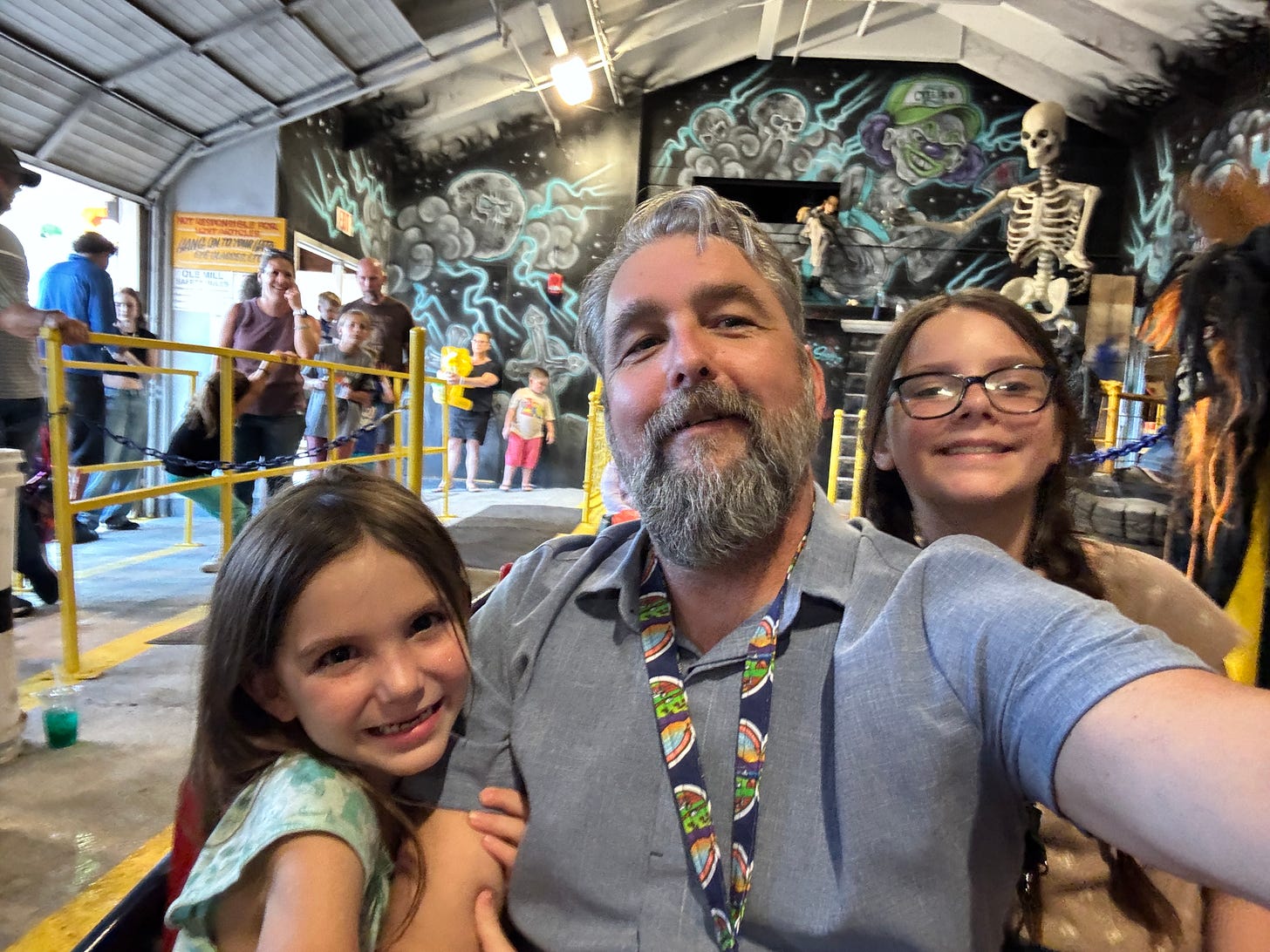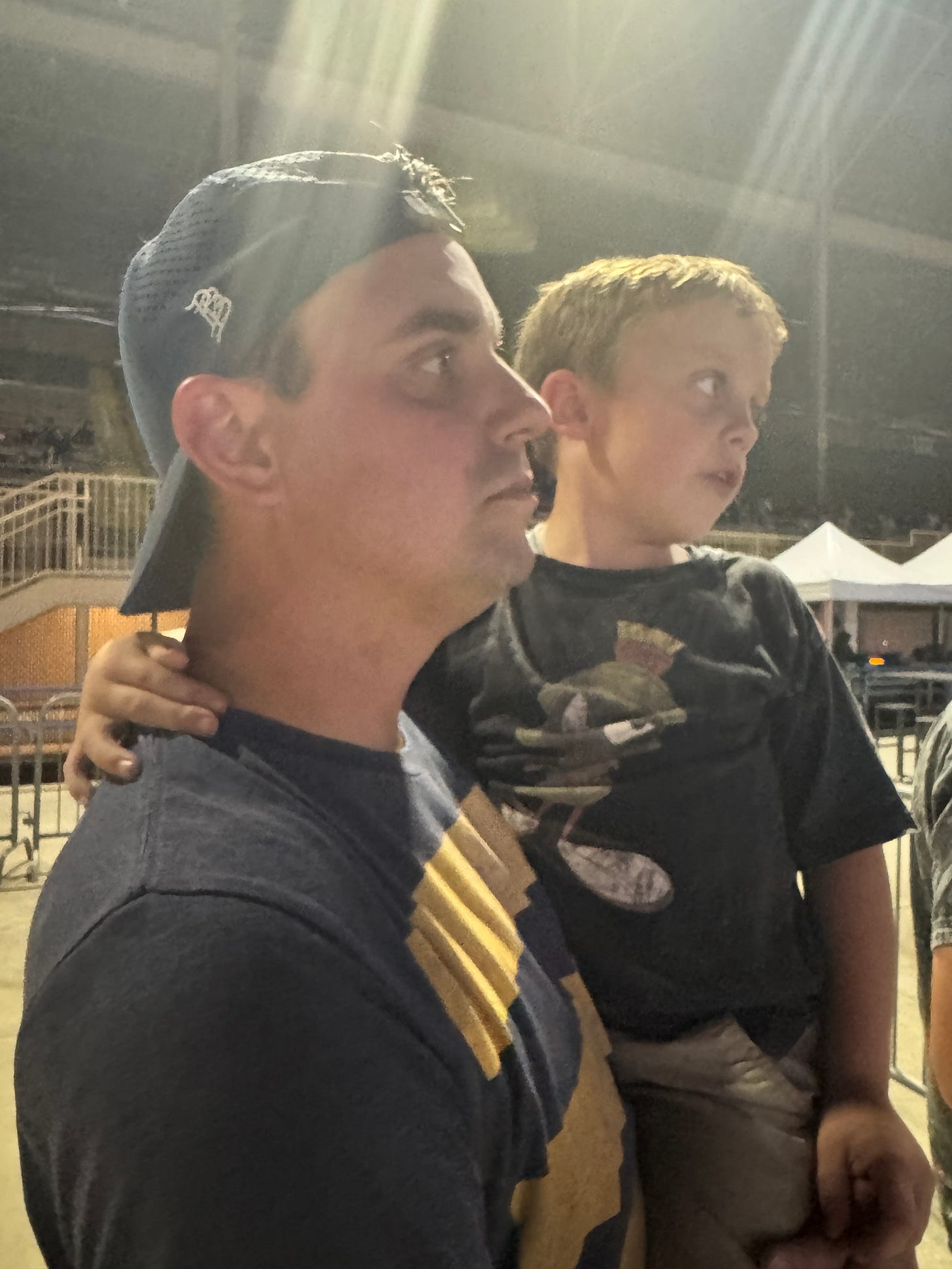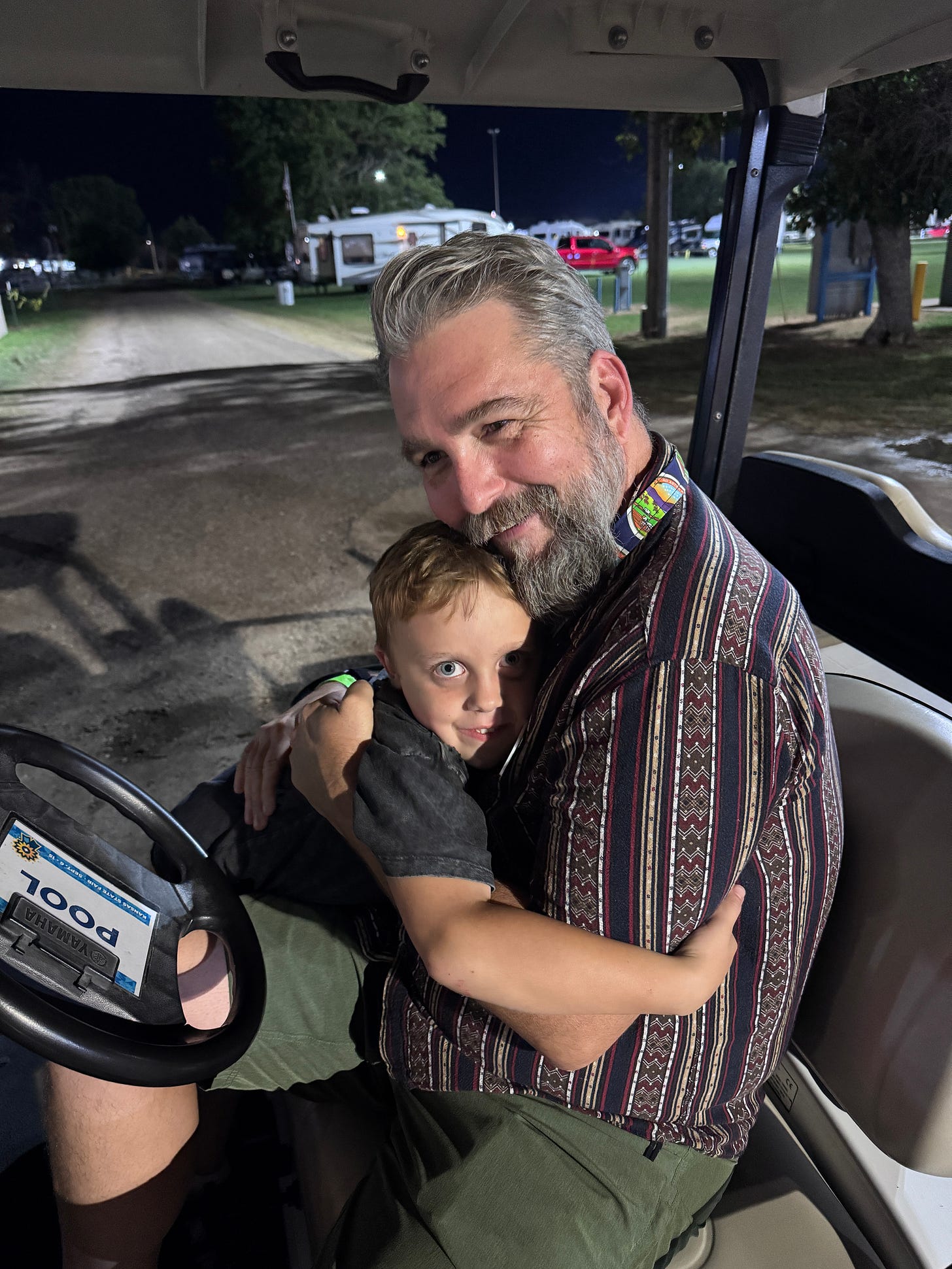Why the Kansas State Fair matters
How creating human experiences and connections builds long term economic returns
Before I start talking about an impossible-to-quantify value of the Kansas State Fair, I need to make sure you’re familiar with this term: Social Atomization.
Here’s the Ai computer generated definition of a uniquely human problem:
“Social atomization is the process by which a society becomes fragmented into a collection of isolated individuals due to the erosion of social connections and communal bonds. This leads to a state of alienation, loneliness, and interpersonal disorganization, where people lack meaningful ties to groups, family, and community. The phenomenon is a characteristic of modern society, often accelerated by factors such as technological advancements and the shift towards individualized experiences, which can replace shared public spaces and traditional social structures.”
Modern American life creates an infinite number of ways for us to feel connected to a group of people while we’re completely alone in real life. There’s been some interesting research of the effects of loneliness and social isolation in America. In fact, the former U.S. Surgeon General issued a health warning, saying that evidence shows that social isolation, or atomization, is as bad for a person’s health as smoking nearly a pack of cigarettes each day.
The report also indicates that social isolation leads to an annual increase of nearly $7 billion in excess Medicare spending due to injuries and illness related to isolation. There’s anecdotal information from people who work with older populations that visits to the doctor’s office is a replacement for social interaction - so they create additional reasons to seek medical care.
We also see the effects of social atomization and isolation in our suicide rates, both nationally and in Kansas - where it’s the second leading cause of death among Kansans aged 25-44 and ages 18-24.
Loneliness and a lack of connection is literally killing us.
Even when we do get together with others in person, far too often it’s centered around some singular identity - faith, sports, hobbies, political parties, common activities, etc.
It’s entirely possible to surround yourself only with people who live life very much the same as you - which can and does lead to a dangerous sort of homogeny that encourages “Us vs Them” thinking. That, in turn, encourages the idea that there’s a right way to live and engage with life, and any other interpretation is not only odd, it’s a danger and a threat.
Even our entertainment and information is fragmented in such a way that we can all spend hours each week watching or consuming our favorite shows, videos, music, or podcasts - and never watch the same media as the person that lives next door.
The Kansas State Fair is one of the remaining events that creates space and opportunity for shared experiences and memories that can challenge monolithic thinking, and combat social atomization.
A visitor might not have anything to do with animals or livestock, but at the fair can experience the birth of a calf. A person from Kansas’ largest cities can see the varieties of livestock up close on the grounds, and can visit with the people who care for them. The Kansas State Fair is a place that serves to bring all the elements of Kansas together in one place, where our different life experiences can be shared broadly and openly with others.
Events like the Kansas State Fair are among the few remaining social gatherings that allow people to have a very personal and individual experience that is also a shared experience with many other people. Every one of us who goes to the fair has our reasons, our own loves, and those are likely different than the reasons other people love and enjoy the fair. Yet, we together share this experience of the fair, and appreciate that we enjoy the same thing, albeit for different reasons.
America is suffering from a sickness. And I don’t really care where you stand politically or who you want to politically blame for that, it doesn’t undo the reality of our current situation. People feel disconnected, and separated. We can all find some little corner of the world where we feel safe, and craft spaces where we never have to engage with people who see the world even slightly differently than we do.
On any given evening, I can retreat to the comfort of my home. I can watch the shows that Netflix thinks I will like. I can read the articles I like on Reddit. I can let Facebook or TikTok feed me videos their algorithm knows I will enjoy - or that will further inflame my angers, fears, and anxieties.
I can retreat to a world of my making - one that is curated and filtered in such a way that I’ll experience little discomfort at all. I’ll never have to meet anyone who disagrees with me, lives a different life than me, or has different ideas from me.
I can, if I want, build a world that is completely different from yours. And I’ll feel happy and safe, validated and vindicated, in that world. I will know with absolute certainty who is right, who is wrong, and my Ai generated experience bubble will make sure my brain gets so much dopamine from my screens that I’ll never want to leave them.
But in that would, we are not really living.
When I was a child, the Kansas State Fair made an imprint on me that has lasted my whole life. I was in awe of all the activity and the opportunity to learn. It was filled with interesting people, which felt quite different than the small town I lived in.
Later, as a teenager, I loved the independence that came with strolling through the grounds with my friends. The state fair was a place of excitement, romance, exhilaration, and community.
That imprint from so many years ago is now in its third generation. My children have the imprint of the Kansas State Fair on their hearts, and now, their children do too. There’s not a world in which we ever consider not going to the fair. I’m confident that in some not-too-distant future, there will be a fourth and fifth generation of my family with such continued love for their fair experiences.
In a world that wants to boil everything down to its dollar value, I’ll argue that there’s incalculable value in creating the opportunity for children to feel connected to an experience, to a community, and to leave a lasting mark on their hearts. What’s the economic value of creating a memory that brings people back to the fair year after year, decade after decade, generation after generation?
The other night, I was watching the wrestling matches at the fair with one of my good friends and his young son - who was enthralled with the action and showmanship of the matches.
As his father and I visited, he said “It’s not about money, it’s about memories.”
That’s true.
And, if that moment left an imprint on that child’s heart, in the long run that memory will pay immeasurable dividends - in the human, community, and financial realms.






